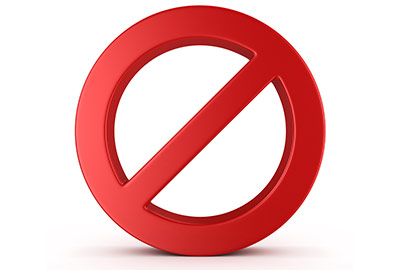Not Everything is Suited for Self-Storage: Know What’s Prohibited and What Needs Special Storage
Self-storage units are a great solution for storing all those things that you just don’t have space for at home. But while you can store just about anything in a storage unit, there are some items that should not be stored in one and others that require special care to be stored.
Prohibited Items
The following items should never be stored in a self-storage unit:
Food
While most people would never consider storing perishable food in a storage unit, some mistakenly believe it’s okay to store non-perishable foods. However, the scent can attract insects and rodents, which can invade your unit and damage your belongings.
Mothballs
Mothballs have an offensive odor that imbeds itself into things like clothing and fabric. The only way to remove the smell is to air out affected items outdoors for a significant amount of time. A day or two outdoors won’t do the trick. Lavender is an effective, non-offensive alternative.
Solvents, chemicals, or fuels
Solvents, chemicals, and fuels require proper ventilation, making them inappropriate for storage in a self-storage unit. This includes cleaning supplies, gardening fertilizers, paint, paint thinner, fuel, gas, or anything flammable or combustible. If you are unsure about a particular item, ask AAA Storage of Lansing’s Resident Manager for guidance.
Explosives
As with solvents and chemicals, you also should never store explosives, fireworks, firearms, or ammunition in your self-storage unit.
Living things
Believe it or not, some people believe it’s okay to leave plants or pets in their storage unit. However, self-storage units, even climate controlled ones, do not provide adequate ventilation or light for plants or pets to survive.
Running appliances
While you can store appliances in your unit, you cannot keep them plugged in and running. This includes refrigerators, freezers, space heaters, and generators.
Items Suited for Climate Controlled Storage
Other items, while acceptable to store in self-storage, are best suited for climate controlled storage. Non-climate controlled storage units do not offer protection from extreme temperatures and humidity. On a hot summer day, which we all know can be especially brutal in Kansas, the temperature inside a storage unit can be as high as the inside of a car parked outdoors. Items that are sensitive to extreme temperatures, humidity, and moisture should be stored in a climate controlled unit to prevent damage. These items include:
Electronics
Electronics are sensitive to heat and can be easily damaged when exposed to extreme temperatures, high or low.
Photos, documents, and books
Heat and humidity can wreak havoc on photos. The chemicals used to print photos can melt and the humidity can cause photos to stick together and cause irreversible damage. Like photos, paper is also subject to damage from humidity, including yellowing, mold, and mildew.
Furniture and clothing
Extreme temperatures and humidity can cause wood to crack, break and warp, while fabrics will yellow and degrade and develop mold and mildew.
Collectibles, art, and other valuables
Artwork, antiques, and even wine are all susceptible to extreme temperatures and humidity. The best way to protect these valuables is to store them in a climate controlled unit.

